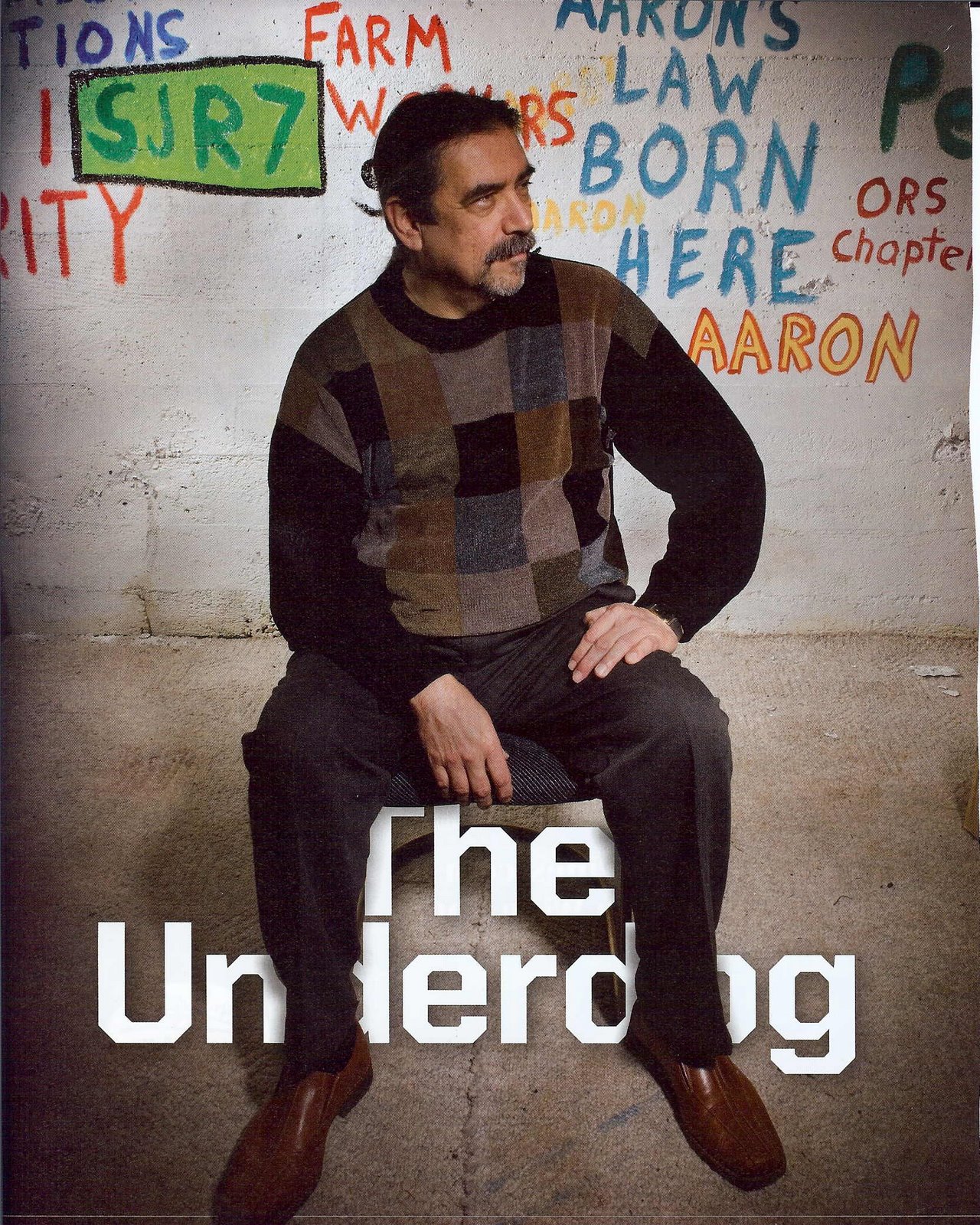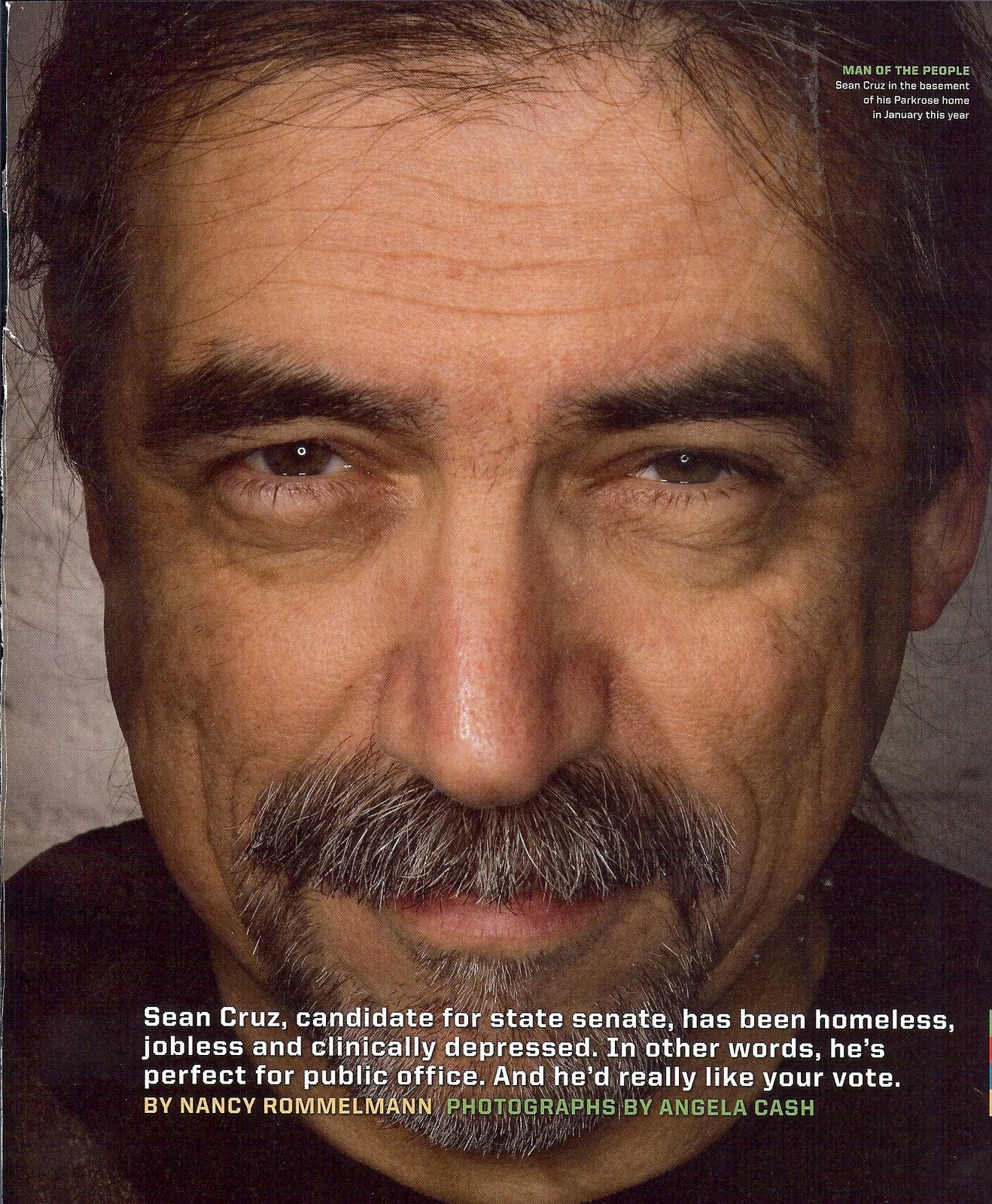Portland, Oregon--
On this beautiful summer day in Portland, we could be relaxing at Cesar E. Chavez Park, or reading at Multnomah County’s Cesar E. Chavez branch library, or some lucky families might be preparing their children for study at the Cesar E. Chavez school, and there would be some peace in the land.
But none of that is happening.
Instead, the City and the larger community are about to begin Round Two, and with the same set of flawed assumptions that characterized Round One, beginning with the assumption that the only “acceptable” way to honor this great man is with a stretch of asphalt and some street signs.
The Committee-Once-Bent-on-Renaming-Interstate and a handful of political insiders have utterly co-opted the name of Cesar Chavez in the City of Portland. I have no idea how they came to own the franchise, particularly those who are neither Mexican American or farm workers or their descendants.
They say that they are the only game in town, in the Cesar Chavez honoring department, and woe to those who disagree….
The park, the library, the school…all were ruled out by a distinctly un-public process that featured (and still features) a Committee that has never announced who its members are, and vota-seeking white politicians.
Before I get into commenting further on present-day Portland, in the tradition of Teachable Moments and in the interest of promoting a broader understanding of the issues, I want to go back in time, waaay back, to 1994, when the Metropolitan Human Rights Commission, serving the citizens of the City of Portland and Multnomah County, published a large-format poster of Cesar Chavez, with text in English and Spanish.
The English text appears thusly:
Cesar Chavez
1927-1993
“Cesar Chavez was a Mexican American (emphasis added) whose experience as a migrant agricultural worker led him to form the United Farmworkers Union to improve their living and working standards. His philosophy of non-violence, community organizing and economic action was the basis for success in negotiating contracts and recognition of the rights of farm workers.”
Cesar Chavez quotes from the poster:
“All my staff, myself, even my attorneys receive compensation of room and board and $10 a week. You really can’t help poor people unless you are willing to live at their level and feel their pain.
“These men, women and children who are faceless, numberless, so many times are the ones who produce the food and yet go home hungry.
“I am convinced that the truest act of courage, the strongest act of humanity, is to sacrifice ourselves for others in a totally non-violent struggle for justice.
“All of my life I have been driven by one dream, one goal, one vision, to improve the conditions of farm workers and create a lasting environment of justice.
“You cannot un-educate the person who has learned to read. You cannot humiliate the person who feels pride. You cannot oppress people who are not afraid of anyone.”
Source: Metropolitan Human Rights Commission (for City of Portland and Multnomah County) poster, ca 1994.
This poster has hung either in my home or office since 1996, the year I moved into Portland. It hung in Senator Avel Gordly’s Senate District office since 2003.
It currently hangs in my Rockwood office, where as an Employment Specialist for the Oregon Human Development Corporation, I find new, full-time jobs for farm workers, helping them transition from seasonal or migrant work, acquiring new skill sets and better opportunities to support their families.
Most of our clients are Mexican or Mexican American, like Cesar Chavez, like me. They are hard-working, reliable and solid citizens regardless of legal status. Some have come a long way, others have lived in Oregon much of their lives.
Cesar Chavez and I are also both Chicanos, a subgroup of Mexican Americans. We are the warrior class. Some don’t like to hear that.
Ah, the loss of institutional knowledge, the pressures of election-year politics…the Metropolitan Human Rights Commission was housed in City Hall itself and no one remembers….
The promoters of renaming Interstate Avenue to “honor” Cesar Chavez never got the basic information on this poster right, or much else, an utter embarrassment.
Cesar Chavez was a Mexican American. One cannot both honor a man and fail to recognize either his ethnicity or the underlying source of his achievements. He was the penultimate Mexican American Chicano farm worker.
Cesar said: “All of my life I have been driven by one dream, one goal, one vision, to improve the conditions of farm workers and create a lasting environment of justice.”
I am going to suggest that the present public process consider how the City can both honor the man and support his dream, his vision, his goal: take a concrete step “to improve the conditions of farm workers and to create a lasting environment of justice.”
There is honor in that, honor all around.
If only the franchise owners hadn’t gotten the City locked into a one-dimensional rut, no imagination required….
Please demonstrate that you have, in the spirit of honoring, the courage to speak about a man who was both honorable and of Mexican ancestry.
And allow the public to suggest alternative ways to honor Cesar Chavez.
Consider these (not my ideas, and there are many others):
Cesar E. Chavez Fair Trade Farmers Market (Tom Hastings)
Cesar E. Chavez Peace Garden
Cesar E. Chavez Memorial Library
All would offer opportunities to educate the public, if that is the goal of this project, and—most importantly—could provide a basis to meld Portland with Cesar’s dream: improving the conditions of farm workers and creating a lasting environment of justice.
Si Se Puede!
Sean Cruz
August 14, 2008
Thursday, August 14, 2008
Subscribe to:
Comments (Atom)





